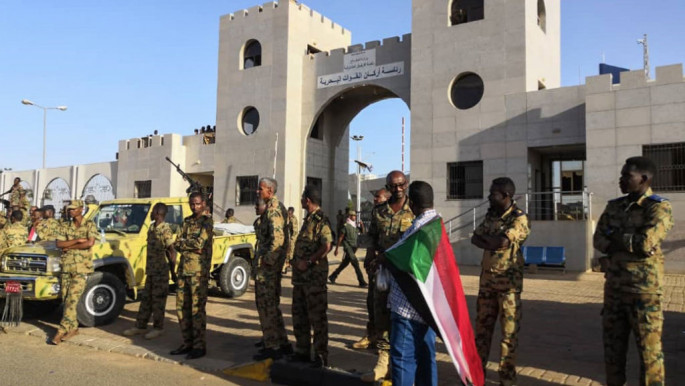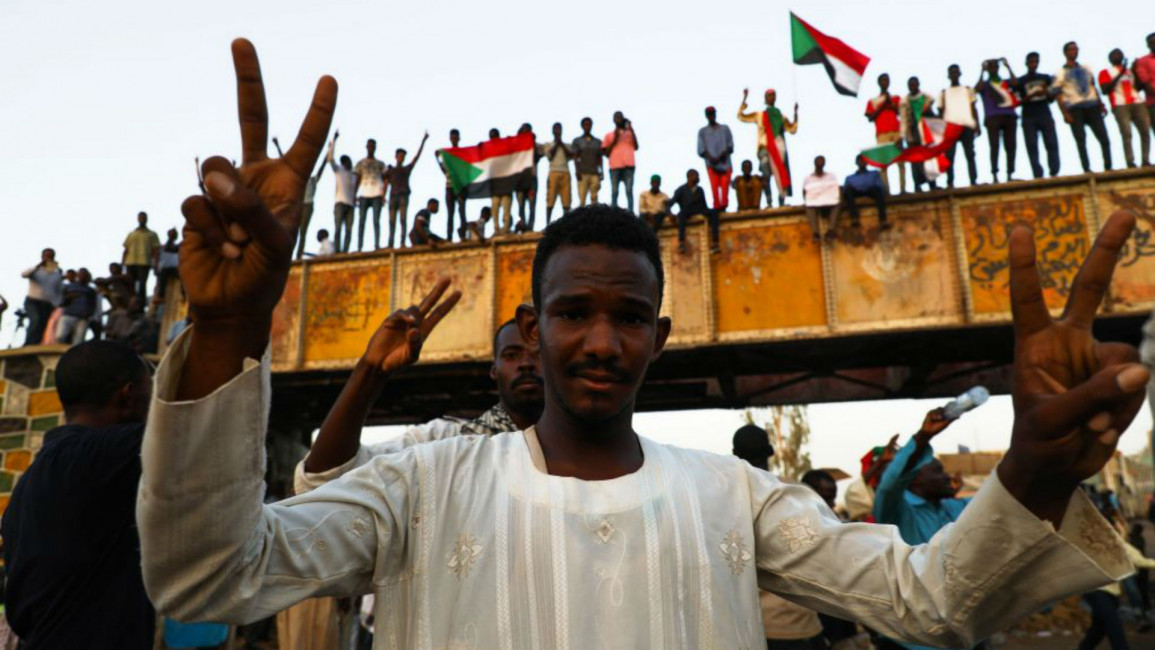
Can Sudan's revolution survive external hijacking?
Yet following Bashir's overthrow, a Military Transitional Council assumed control of the country, and protesters are still pushing for greater concessions and civilian rule.
Currently the opposition are in a deadlock with the military - considered to be Sudan's "deep state", to gain greater civilian representation in a new transitional government.
As with any revolution, and particularly past attempts in the Middle East and North Africa region, external powers often attempt to hijack them. Observers are suspicious that Saudi Arabia and the United Arab Emirates had been trying to subvert the revolution even before Bashir fell from power.
No leading world power such as the United States, China, Russia or the EU has actively called for a democratic transition in Sudan, leaving the revolution vulnerable to such interference.
Fears the UAE and Saudi Arabia trying to hijack Sudan's revolution are not misplaced, given how both have backed undemocratic leaders and tried to crush reforms in Egypt, Bahrain, Libya and elsewhere.
Both states seek to prevent democratic transition which could trigger further regional calls for democracy, and ultimately inspire reformers with Saudi Arabia and the UAE. The pair are also trying to establish themselves as dominant in the wider region.
 |
Demonstrators are on guard and prepared to work against Riyadh and Abu Dhabi's geopolitical ambitions |  |
Securing Sudan as a regional ally would keep the country in the Saudi-led coalition in Yemen. One of the protestors' complaints was over Sudan's involvement in Yemen, and another withdrawal from the coalition could further de-legitimise Saudi Arabia's war in the country.
Notably, Riyadh and Abu Dhabi have already showered the Military Transitional Council with $3 billion, with the UAE also depositing $250 million into Sudan's central bank. The Emirates had also donated money to Bashir's regime in the weeks before his downfall.
Some may believe this is an act of creating stability, in a country facing economic and political insecurity.
 |
|
| Sudanese protesters rally outside the military headquarters in Khartoum [AFP] |
But in reality, these financial efforts aim to gain the favour and subordination of the regime to their own influence, making Sudan more dependent on their support, while shoring up a military regime.
It's worth noting though, that the two countries have backed different figures, tied either to the military or the Bashir regime.
Both support transitional council leader, Abdel Fattah al-Burham. As the military and opposition try to negotiate a new transitional agreement, the UAE and Saudi Arabia might try to support other candidates to secure their interests, either from the military or the pre-revolution regime.
 |
Demonstrators have criticised Saudi Arabia and the UAE for trying to influence the revolution with their wealth |  |
Abu Dhabi has tried to host five opposition groups for talks of joining a military-led government; indicating it is in the business of trying to influence other parties.
UAE Minister of State for Foreign Affairs Anwar Gargash justified the $3 billion in financial aid to the regime to guarantee an "orderly and stable transition in Sudan", adding that "we have experienced all-out chaos in the region and don't need more of it".
The UAE, along with Saudi Arabia, would clearly use the stability argument to justify a continuation of authoritarian, military rule.
Read more: In Libya, UAE fingerprints are all over the incumbent coup
The two powers reportedly tried to back Salah Gosh, Sudan's former intelligence chief and a relic of the old regime, as a presidential candidate during the anti-Bashir protests. Yet his resignation last month shows a key victory from the protestors.
Both countries are using the military as a gateway into expanding their influence there, as they did when backing Egypt's military coup in 2013.
Analysts and Sudanese protesters warn that if the military were able to retain power, it would do so. And while the military has said it would step back, it would certainly intervene if further violence broke out. Like Saudi Arabia and the UAE, 'instability' would likely be as a pretext to justify seizing control.
 |
Egypt could use its influence in the African Union to help its close allies Saudi Arabia and the UAE prolong military rule |  |
Yet, the Sudanese people have so far showed remarkable determination and resilience in bringing change to their country.
If the protests can stay united in a post-agreement solution, they could force the military to make further concessions.
Demonstrators have criticised Saudi Arabia and the UAE for trying to influence the revolution with their abundance of wealth, showing that they are on guard and prepared to work against Riyadh and Abu Dhabi's geopolitical ambitions.
Without excessive interference, other states could simply encourage the Military Transitional Council to cede power to the civilians, as the African Union has called for. Egypt could use its influence in the African Union to help its close allies Saudi Arabia and the UAE prolong military rule.
While it seems likely that Saudi Arabia and the UAE could still gain influence within Sudan's military, scaling back its powers could prevent a military government and ultimately a Saudi and Emirati takeover of the country.
For this, a large unified protest movement between all the various Sudanese parties is crucial to safeguarding the revolution, and creating a Sudan that benefits the people themselves, and not the geopolitical interests of Saudi Arabia and the UAE.
Jonathan Fenton-Harvey is a freelance journalist.
Follow him on Twitter: @jfentonharvey
Opinions expressed in this article remain those of the author and do not necessarily represent those of The New Arab, al-Araby al-Jadeed, its editorial board or staff.




